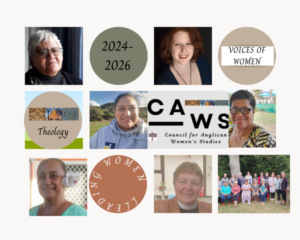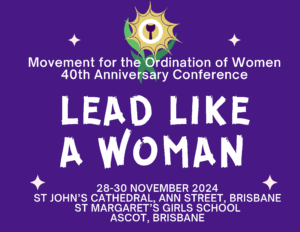
This article is from the United Nations UN Women, which in turn is linked with the Commission on the Status of Women. AWSC has mentored several leading women from the Anglican Church to attend the global consultations.
Date: Wednesday, July 1, 2020
Originally published on Medium.com/@UN_Women
From the disparate impacts of the COVID-19 crisis in communities around the globe to international protests against racism and discrimination, current events have shown that we are far from achieving equality. Trying to interpret and battle a multitude of injustices right now may feel overwhelming. How do we take on all these issues, and why should we? Intersectional feminism offers a lens through which we can better understand one another and strive towards a more just future for all.

Kimberlé Crenshaw, an American law professor who coined the term in 1989 explained Intersectional feminism as, “a prism for seeing the way in which various forms of inequality often operate together and exacerbate each other,” in a recent interview with Time.
“All inequality is not created equal,” she says. An intersectional approach shows the way that people’s social identities can overlap, creating compounding experiences of discrimination.
“We tend to talk about race inequality as separate from inequality based on gender, class, sexuality or immigrant status. What’s often missing is how some people are subject to all of these, and the experience is not just the sum of its parts,” Crenshaw said.
Intersectional feminism centres the voices of those experiencing overlapping, concurrent forms of oppression in order to understand the depths of the inequalities and the relationships among them in any given context. Valdecir Nascimento. Photo: UN Women/Ryan Brown
Valdecir Nascimento. Photo: UN Women/Ryan Brown
In Brazil, Valdecir Nascimento, a prominent women’s rights activist, says that, “The dialogue to advance black women’s rights should put them in the centre.” For 40 years, Nascimento has been fighting for equal rights, “Black women from Brazil have never stopped fighting,” she says, noting that black women were part of the feminist movement, the black movement, and other progressive movements. “We don’t want others to speak for black feminists—neither white feminists nor black men. It’s necessary for young black women to take on this fight. We are the solution in Brazil, not the problem,” she says.
Using an intersectional lens also means recognizing the historical contexts surrounding an issue. Long histories of violence and systematic discrimination have created deep inequities that disadvantage some from the outset. These inequalities intersect with each other, for example, poverty, caste systems, racism and sexism, denying people their rights and equal opportunities. The impacts extend across generations.


